What do narcissists hate the most
What Do Narcissists Hate the Most?
There’s a fine line between a narcissist’s biggest fears and what they hate the most, that gets crossed frequently. A narcissist’s manipulative nature circulates around their astronomical fear of inadequacy, which is why their fears, aspirations, and things they despise overlap, but what do narcissists hate the most?
The thing that narcissists hate the most is when their fears of inadequacy are triggered by narcissistic injuries, disappointment, rejection, or even feedback and/or criticism. However, this article is going to focus on what’s probably the most universal triggers of inadequacy in the narcissistic realm, setting boundaries, gray rock method, and the no contact method.
All three of the tactics I listed above are designed for victims and survivors of narcissistic abuse to preserve their mental health and/or escape the narcissistic abuse cycle. They’ve been chosen for this article because each of them trigger a different aspect of a narcissist’s fear of inadequacy.
The fundamentals of preserving one’s mental health in a narcissistic relationship is setting boundaries; it’s a person acknowledging and respecting their own limitations. Setting boundaries could manifest in a person refusing to have their reality denied by holding others accountable for their actions, or it could manifest in someone refusing to participate in sexual activities with their partner that make them uncomfortable.
With that being said, setting boundaries in a narcissistic relationship is very difficult because it contradicts a narcissist’s sense of specialness. When you set a boundary with a narcissist, you’re essentially drawing a psychological line in the sand, that the narcissist is prohibited from crossing.
For whatever reason it may be, entitlement, arrogance, or their manipulative nature, boundaries are a foreign concept to a narcissist. For narcissists, the concept of another person creating limitations for their behavior challenges their sense of specialness, which is deeply unsettling for them.
The fragility of a narcissist’s ego is astonishing. There are different theories about how narcissists are made, but there is no denying that they are emotionally stunted. Their emotional inadequacy causes them to prioritize the accumulation of materialistic things, over emotional stability when formulating their self-esteem.
Because of this inadequacy, narcissists create their public image and reality based on societal norms. For example, in today’s society, a need for a social media presence, wealth, materialistic things, power, and the acceptance of stepping on others to achieve our aspirations are societal norms, some may be more commonly seen than others, but nevertheless they still exist.
A narcissist’s self-esteem consists of these societal norms because they have an insecure need to be accepted by society. Where this becomes problematic is when they cross-paths with those who are non-narcissistic.
Even though all of us desire to excel in one or more of the societal norms I listed above, non-narcissistic individuals don’t build their self-esteem off of societal norms to the extent that narcissists do.
What ends up happening is that narcissists develop a very immature perception of the world, and subsequently, self-esteem. This makes them very vulnerable to everyday comments and concerns non-narcissistic people make or have.
The reason narcissists hate other people setting boundaries is because their egos are so fragile that something as simple as having boundaries challenges their sense of specialness and triggers their fear of inadequacy.
Gray Rock MethodWhen a victim or survivor of narcissistic abuse refuses to share important information about themselves with a narcissist, refuses to argue, defend, or explain themselves to a narcissist, and resist baiting tactics, they are using the gray rock method.
The gray rock method is when a victim or survivor of narcissistic abuse maintains a superficial relationship with a narcissist by refusing to engage in significant conversations.
The purpose of this tactic is to drastically reduce the amount of narcissistic supply which subconsciously encourages the narcissist to move onto another source.
Narcissistic supply is the validation, admiration, and emotional stability narcissists siphon off of other people. By using the gray rock method, victims and survivors of narcissistic abuse prohibit their abuser from using their vulnerabilities and insecurities against them, minimizing their thoughts and feelings, and even gaslighting them.
How Does the Gray Rock Method Trigger a Narcissist’s Fear of Inadequacy?The gray rock method targets the very thing that helps a narcissist maintain a functional level of emotional stability, which is narcissistic supply. As I mentioned before, narcissistic supply is the validation, admiration, and emotional stability they siphon off of other people, without it, they’d be forced to address their emotional inadequacy.
When a victim or survivor of narcissistic abuse uses the gray rock method, their narcissistic abuser will become very rageful.
Why?
When a narcissist isn’t able to regulate their emotions through their victim because of a significant lack of narcissistic supply, they are forced to address their emotional inadequacy, which triggers shame.
Narcissists have an immense amount of shame suppressed within their psyche because of their upbringing, so when it’s triggered, their volatile response is unstoppable and uncontrollable.
Because of their emotional inadequacy, they can’t regulate the intensity shame has on one’s emotional stability, so they compensate for this deficiency by throwing themselves into a rage.
The only problem is that because rage is anger out of control, their rageful response is rarely accepted by those who witness it, which contradicts their sense of specialness and throws them back into a state of shame.
This is known as the shame-rage spiral, as soon as the narcissist rages, they experience shame because of their response, which throws them back into a rage because of their inability to regulate their emotions in a healthy manner.
The no contact method is self-explanatory, it’s when a victim or survivor of narcissistic abuse cuts off all forms of communication with their abuser, annihilating a narcissist’s much needed narcissistic supply.
As simple as it may sound, this is no easy task. Narcissistic relationships, whether it be intimate, in a family setting, at work, or a friendship, are plagued with guilt and shame from both ends.
We already know narcissist’s have an immense amount of shame suppressed within their psyche, but we also need to understand that they also project their shame and guilt onto their victim.
They are constantly using the victim as a scapegoat to regulate their emotions. Combine this with the pervasive environment of manipulation and isolation, and you create a victim of narcissistic abuse with low levels of self-esteem and a tendency to blame themselves for their abuser’s shortcomings.
So, when victims of narcissistic abuse acknowledge that what they are experiencing is abuse and summon the courage to leave the relationship, it’s very common for them to be extremely conflicted, even though they know that their abuser is abusive.
How Does the No Contact Method Trigger a Narcissist’s Fear of Inadequacy?“I was extremely defensive of him even though I knew some of the things he was doing were wrong.” Brie Robertson
One of the most peculiar aspects of narcissism is their fear of abandonment. Many researchers believe that the origin of Narcissistic Personality Disorder can be traced back to the Attachment Theory, which suggests that people with narcissistic personalities have either anxious, dismissive avoidant, or fearful avoidant attachment styles.
It sounds so strange that a narcissist, someone who avoids intimacy, has an underlying fear of abandonment, but they do. In fact, it was so strange that we decided to conduct our own study to test the Attachment Theory in a previous article, How Do Narcissists Feel When You Move On?, and this is what we found.
Fear of Abandonment Study:For this study, we asked 36 survivors of narcissistic abuse the following:
Some researchers believe that narcissists have an underlying fear of abandonment, caused by attachment styles along with other psychological issues.
This belief suggests that your abuser would become extremely agitated when you’re separated and angry/distant when you’d reunite. Did you experience these behavioral patterns? If you’re unsure, read the quote below to get a better sense of what the patterns would look like.
“The days before I’d go visit my friends without my husband, he would get so angry over the smallest things. We fought a lot but whenever we were about to be separated, it was ten times worse.
When I came back home, he would ignore me, be passive aggressive, and start senseless arguments. I would try to fix everything by showing a ton of affection, but he would just push me away” – Cassandra
The correlation between the Attachment Theory and a narcissist’s underlying fear of abandonment is undeniable. It’s for this reason that the no contact method is most certainly one of the things narcissists hate the most.
What Should You Takeaway From This Article?Having to endure narcissistic abuse can be one of the most detrimental forms of abuse one can experience, if you don’t have the guidance and/or knowledge required to heal efficiently.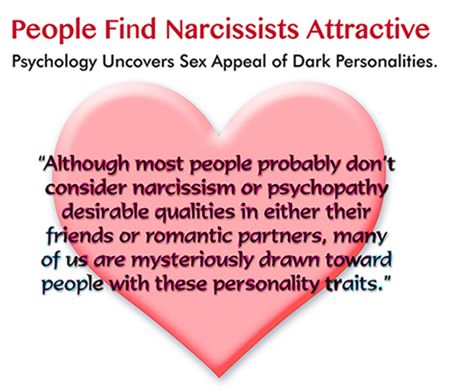
Learning about the narcissistic realm is the most proactive action one could take if they wish to protect themselves from narcissists.
Get a Free Healing Bundle Every Week!
- 1 Educational Video From a Mental Health Professional
- 1 Informative PDF About Narcissistic Abuse
- 1 Journaling Exercise With Multiple Prompts
- 7 Affirmations for the Upcoming Week
- Lifetime Access to Our Private Online Community
Get a Free Healing Bundle Every Week!
- 1 Educational Video From a Mental Health Professional
- 1 Informative PDF About Narcissistic Abuse
- 1 Journaling Exercise With Multiple Prompts
- 7 Affirmations for the Upcoming Week
- Lifetime Access to Our Private Online Community
All of the content that Unfilteredd creates is for educational purposes only and is not intended to be a substitute for clinical care — please visit here for qualified organizations and here for qualified professionals that you can reach out to for help. This article has been reviewed by our editorial board and has been approved for publication in accordance with our editorial policies.
This article has been reviewed by our editorial board and has been approved for publication in accordance with our editorial policies.
ATTACHMENT THEORY AND RESEARCH APPLIED TO THE CONCEPTUALIZATION AND TREATMENT OF PATHOLOGICAL NARCISSISM C. Susanne Bennett, Ph.D.1
Suggested Readings:What Do Narcissists Fear the Most?
How to Set Boundaries With a Narcissist
What Does A Narcissist Hate?
Contents:
|
When people with narcissistic traits decide they hate something, all hell breaks loose and no one in their perimeter is safe and trust me, I should know because I’ve been there, done that and bought the t-shirt with my ex. My ex was a complete narcissist so I know firsthand what gets under these vindictive people’s skin and want to alert you to their triggers too.
1) Losing control
Control is a narcissists best ally and they need it in order to be able to sink their claws into their victims. From deciding where to go out to eat, to taking the lead in conversations, these personalities will want to be the ones pulling the strings and if people don’t get on board, well that’s just too bad. They feel the need to be the one who decides and feel entitled to take the lead in all circumstances. Negotiation with these folks is literally a distant dream because they will only ever take their opinion into consideration.
2) Feeling looked down on
No one likes to feel disrespected, but narcissists simply just can’t accept the feeling. When they believe that someone has started to lose their admiration for them, things could take a dangerous turn because they’ll do anything to win back that triumphant feeling of being looked up to. After all, these guys need to be told that they are the best looking, the smartest and the most interesting people on the block.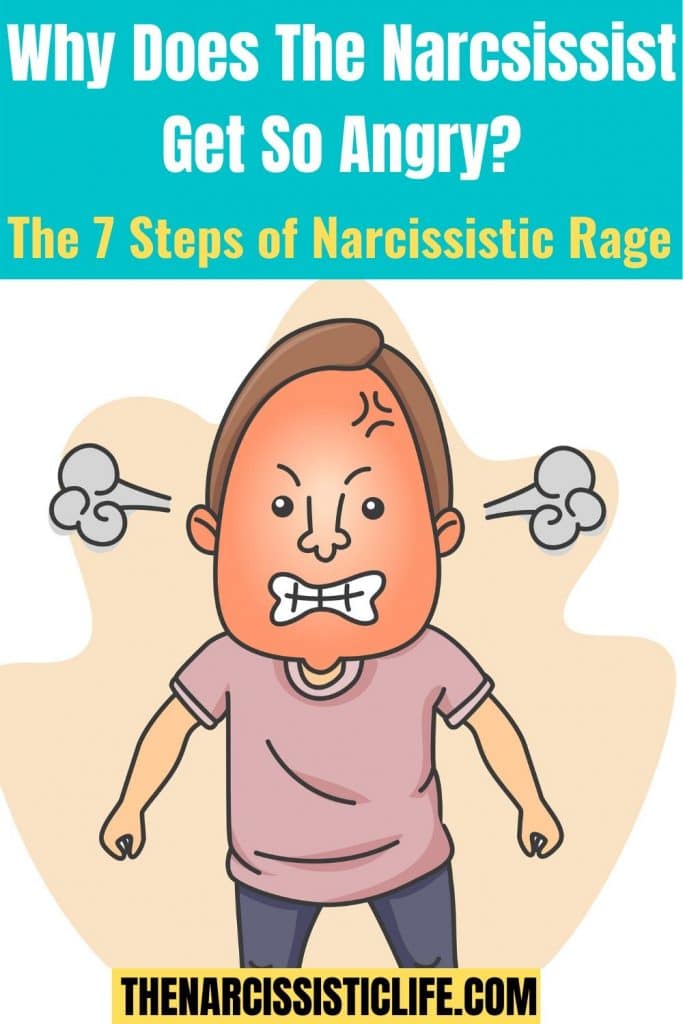
>>> Discover the 5 symptoms of anxiety
3) Truly strong people
Now, the thing is, folks with this personality disorder are completely jealous of other people. Be it for their possessions, their success or their abilities; the bottom line is they’ll always be envious of those they believe are truly respected for their authentic selves. It’s important to remember that these people are only put on a facade that they are strong, confident and respectable, yep, they’re only hiding behind a well-constructed mask and really don’t view themselves very highly.
4) Being lectured and challenged on what they claim to know
Now, this point could really make them see red! It’s not uncommon for sufferers to believe their own hype and to convince themselves and others for that matter of fact that they are experts in certain areas. Whether they believe they are completely up to date with current affairs, foreign policy or even the history of football, they’ll hate anyone else invading their so-called territory and claiming to know a thing or two. Jealousy also comes into play here and makes them feel threatened and undermined by folks they obviously consider to be inferior to themselves.
Jealousy also comes into play here and makes them feel threatened and undermined by folks they obviously consider to be inferior to themselves.
5) Being told no
Okay, so imagine the consequences of showing a red rag to a bull, well, a victim finally standing up for themselves would probably produce the same effects. People with narcissistic tendencies hate being told no because they believe themselves to be superior and know better than everyone else, so why would anyone need to go against them and affirm their views?
6) Seeing other people happy
You’ve probably guessed by now, but we’re dealing with inherently unhappy and dissatisfied personalities, who struggle to love themselves. Their battles with their self-image mean they can’t stand being around those that seem secure and happy with their lives and situation.
7) Being confronted with the ugly truth
I’d be lying if I said these guys were the bravest when it comes to facing up to their realities and realizing who they are. In fact, admitting their weaknesses to themselves is something they are equipped to do. After all, feeling bad about themselves goes against their mantra of making themselves look and feel good at all times. Plus, no one really wants to admit that they are manipulative, controlling and dishonest.
In fact, admitting their weaknesses to themselves is something they are equipped to do. After all, feeling bad about themselves goes against their mantra of making themselves look and feel good at all times. Plus, no one really wants to admit that they are manipulative, controlling and dishonest.
>>> Read up on why I always make the wrong decisions
8) When someone else steals the limelight
How dare anyone steal a narcissist’s glory and if you choose to do so, you’d best be prepared to face their wrath! The truth of the matter is that these personalities can’t stand the idea of anyone in their entourage succeeding or doing better than them. Competition is everything for them and second place is definitely out of the question.
9) Being unable to manipulate their victims
This is undeniably their biggest source of frustration ever. These personalities don’t exist if they have no one to manipulate and control.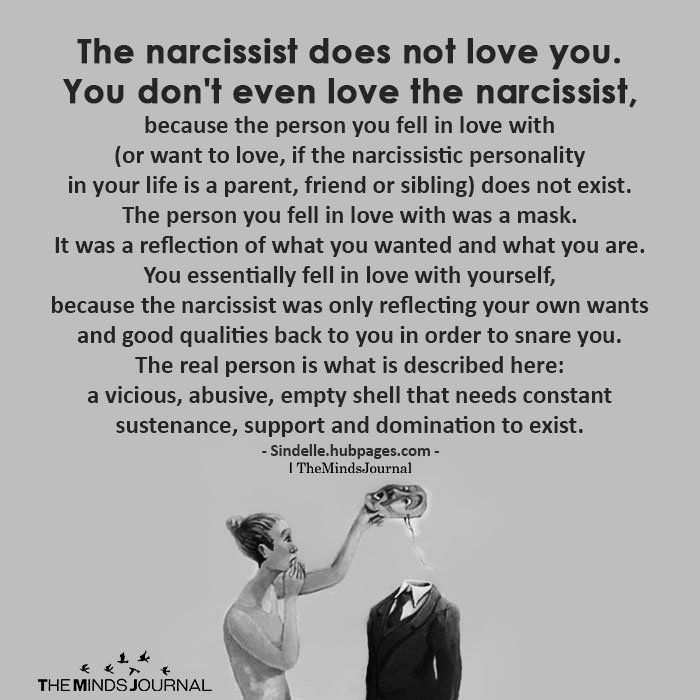 Manipulation is their biggest hobby, so when their victims find their voice and decide enough is enough, a feeling of anger and emptiness washes over them.
Manipulation is their biggest hobby, so when their victims find their voice and decide enough is enough, a feeling of anger and emptiness washes over them.
10) Being ignored
When all eyes aren’t on them and they aren’t being made to feel special, you can count on drama starting. You must remember that these folks have over inflated egos which mean they need to command your attention and have you at their beck and call at all hours of the day and night for that matter.
>>> Am I a narcissist? Take the test here
Editor’s opinion: Stand strong and don’t back downPeople with narcissistic personalities will do anything to remain in control and get what they want, so don’t be drawn into their little games when they claim that you’ve done something to hurt their feelings. There are many things that get to us but don’t let yourself be tricked into feeling guilty about things that have allegedly upset them because this will be a catalyst to gaining your sympathy vote. |
More interesting content:
- Can a narcissist love you?
- Do narcissists cry?
- How do narcissists behave sexually?
methods to kill. II. Narcissists
We will continue to inflict psychological violence. Today, our victim will be a more dangerous beast - the daffodil. This type has already been trained in some skills of self-defense and manipulation, knows how to advance in society, especially in today's society. And his meat is richer, where without it.
↓Essence
If the narcissist can be described as briefly as possible, then this is a person whose internal self-esteem depends solely on external factors. He can successfully exist only in society, only surrounded by other people. Libido turns on itself the object of attraction and desire becomes its own ideal projection .
Mr. Brodsky somehow delicately remarked: “ By the way, we all masturbate ”, but the narcissist goes further: other people, in principle, are reduced to the role of objects for masturbation. And they have no more respect for others than for an elastic pink dildo. What kind of empathy can we talk about here?
And they have no more respect for others than for an elastic pink dildo. What kind of empathy can we talk about here?
To begin with, the narcissist lives with inflated self-esteem and fantasies about the significance and greatness of all his undertakings. Greatness must be verified by the recognition of others , their enthusiastic assessments. Moreover, he must receive his praise immediately: at the same moment, as soon as he is bitten by a worm of doubt in his own abilities. Narcissists have psychic inflation: an unrealistic sense of identity. Ambivalently replace each other complexes of God and total inferiority. It all depends on whether the narcissist is on a horse today or under a horse.
Since the narcissist subconsciously feels that a well-built projection, a false personality, and not himself, is receiving praise, then emotional burnout gradually sets in.
It is important to know the following term - "self-objects". This is the name of the people who feed the insecure self-esteem of narcissists. It is an external object with which one can identify oneself. You can divide self-objects into two broad categories. The first is flatterers, sycophants and naive people who make up the main environment of the narcissist. A narcissist always has a fan club. This is dogma. Selfish egoists do not intend to keep not only critics and opponents, which is understandable, but even indifferent people or people who find it difficult to defiantly express approval. If a particularly talented sucker suddenly appears, then the narcissist begins to compare his old acquaintances with him, gradually becoming disillusioned with them. Like, if their language is not so rough and affectionate, then they love it less.
It is an external object with which one can identify oneself. You can divide self-objects into two broad categories. The first is flatterers, sycophants and naive people who make up the main environment of the narcissist. A narcissist always has a fan club. This is dogma. Selfish egoists do not intend to keep not only critics and opponents, which is understandable, but even indifferent people or people who find it difficult to defiantly express approval. If a particularly talented sucker suddenly appears, then the narcissist begins to compare his old acquaintances with him, gradually becoming disillusioned with them. Like, if their language is not so rough and affectionate, then they love it less.
The second kind of self-objects are ideals and spiritual teachers. Narcissists tend to not only consider themselves great people, but also take pride in meeting other historical figures. These can be both people who are deified during their lifetime, as well as philosophers, writers and other prominent figures of the past. Such a self-object has indisputable authority; it often becomes a victim of an idealizing transference against its will. In particular, narcissists like to deliberately admire more successful colleagues, exalt successful writers if they want to become writers themselves, and have an almost teenage love for interesting teachers. They are attracted by the veil of success and recognition that they would like to create for themselves. In fact, this is a remedy for envy: can't outdo the object, then start worshiping it to snatch its mana .
Such a self-object has indisputable authority; it often becomes a victim of an idealizing transference against its will. In particular, narcissists like to deliberately admire more successful colleagues, exalt successful writers if they want to become writers themselves, and have an almost teenage love for interesting teachers. They are attracted by the veil of success and recognition that they would like to create for themselves. In fact, this is a remedy for envy: can't outdo the object, then start worshiping it to snatch its mana .
Maybe someone remembers Natella Speranskaya ? This is an obvious and clinical case of narcissism. Her obsession with Dugin, Nietzsche, the presence of crazy global creative projects, intolerance of criticism, constant rattling of regalia, cosmic conceit and an abundance of significant self-portraits in the photo gallery - everything is like in a textbook.
By the way, the possession of various diplomas, diplomas and awards is very important for them. If in a person’s profile you see an impressive dossier with a list of victories, nominations, publications up to an extract about a good appetite from kindergarten, then you can be sure that a daffodil has opened up in front of you. The main task of narcissists is to compose a message about their remarkable functional potency . They spend a lot of time compiling detailed reports on their activities, both professional and personal. Sometimes, it comes to exhibitionism. A person thinks that the community from social networks is obliged to like any manifestations of his life, large and small. And then a photo of a crooked view from the window will be identically equal to obtaining an MBA certificate.
If in a person’s profile you see an impressive dossier with a list of victories, nominations, publications up to an extract about a good appetite from kindergarten, then you can be sure that a daffodil has opened up in front of you. The main task of narcissists is to compose a message about their remarkable functional potency . They spend a lot of time compiling detailed reports on their activities, both professional and personal. Sometimes, it comes to exhibitionism. A person thinks that the community from social networks is obliged to like any manifestations of his life, large and small. And then a photo of a crooked view from the window will be identically equal to obtaining an MBA certificate.
In general, it must be said that daffodils are the most important opportunists in the universe. They actively broadcast what they think is popular and in demand among the target audience. They never do anything for themselves, they never write to the table. However, having fed five thousand people, the narcissist suddenly discovers that he himself was left terribly hungry.
Narcissists lack empathy. They do not feel the feelings of other people, it comes to materialism in interpersonal relationships. They also have a very vague idea of boundaries. Often they unceremoniously interfere in the affairs and conversations of other people. Moreover, they immediately take a dominant position, put things in order without accepting any objections. So an old mother can break into the apartment of a formally adult child and remake everything there, rearrange, rebuild to her taste. Narcissists easily read other people's diaries and letters.
The worst thing for a narcissist is to experience shame. This is not guilt - guilt is experienced internally and is more characteristic of our beloved masochists. But shame is when other people think you are "bad". It is better to die than to experience full-blown disgrace. You see, the narcissist values his identity so much that he reacts with unbearable pain to any attack on it. He would rather put on a mask for which he will be praised than risk showing his true and vulnerable self . Since the narcissist subconsciously feels that a well-built projection, a false personality, and not himself, is receiving praise, then emotional burnout gradually sets in. The narcissist becomes cold and indifferent, a sucking emptiness grows inside him.
One of my acquaintances showed her independence from others in every possible way. If she admitted that she depends on others, needs their love and approval, it would be humiliating. The people around her weren't people—they were stimuli. These must be surpassed, these must be impressed, recommendations must be obtained from these. From the outside, it looked like some kind of surreal marathon. But she didn't realize that she was sucking up. It seemed to her that she was behaving naturally, and for some reason people around were melting and thrilled. The consciousness of narcissists is actually unreflected. The higher the narcissist climbs, the more arrogantly he behaves. They do not remember the covenant Spider-Man that great power brings great responsibility. No, power brings to narcissists only the emancipation of passions and the worst manifestations of tyranny.
Narcissists find it difficult to establish long-term relationships. They care about quantity, not quality. One admirer easily replaces another, it is important to maintain (and slowly increase) the overall level of flattery and attention. They really do feel special. They often become intrusive and familiar because they feel that the accepted rules of decency do not apply to them. N.B. - Narcissists never break the rules when compared to asocials. They just think they're above those rules.
The sexuality of narcissists should be considered. Many of them fall in love or start having sex because they feel inferior in comparison to more successful peers who are already given. If they laugh at a narcissist that everyone has girls, but he doesn’t, tomorrow he will come with some kind of scum. Reacts to changes paradoxically. Curiosity begins to disassemble him: “Did you feel as good as with me?” And if the narcissist hears in response that it is the coolest thing with him, then he will easily forgive any adultery. A narcissist man will travel all over his partner's brains, figuring out whether she had an orgasm or not. If the relationship does not work out, the narcissist tries his best to devalue the object of his passion. Having received a nominee diploma for a graphomaniac rhyme, the narcissist will smile wryly and say: “Yes, she doesn’t deserve me.”
Social networks have done everything to contribute to the spread of narcissism among the population. If you think about it, this is a paradise for narcissists - thanks to likes and reposts, sympathy becomes something measurable and almost physically tangible, you can check in in beautiful and trendy places, at cool events, you can pour out your point of view on everything. Sooner or later, both online and in life, a narcissistic circle of interests is formed. It's a wild mixture of Masonic lodge and reality show "Behind the Glass" . On the one hand, the characters behave as if there, behind closed doors, almost the Eleusinian Mysteries are being accomplished. Narcissists with an important look stick out the elitism of their party. They scribble and masturbate to each other such comments and reviews that even freelance students for big money will be embarrassed to write. On the other hand, their activities are advertised through all available distribution channels. A group of narcissists entangled in a homogeneous hivemind behaves in exactly the same way as an individual member of this group. They, too, will look for subserviently assenting admirers and provoke (or rather, pretend to successfully provoke) those who do not fit into their mutual masturbation section.
However, narcissists can achieve quite significant success in society. In general, narcissists should be divided into two types. The first is a narcissist with no results. Everything is clear here, we see a petty and insignificant person with an inflated fantasy inner world, who believes that everyone around her owes her. It's funny and a little pitiful if we felt sorry. The second type is the achievement narcissist. It would seem that this person has real reasons to admire himself and demand the same from others. However the narcissist very quickly devalues all his achievements, the very next day they do not bring him any satisfaction . Because you can't build self-respect on achievements alone. And then he decides that, apparently, he just needs to achieve something even more grandiose, and he is going on a new campaign. And so on until it breaks.
We are used to the fact that children should be required to the maximum, that one cannot love them just like that. In addition, this model is simple and understandable, like any trade and market relations: you give me a diary with fives, I give you love and recognition
Anamnesis
Prominent psychoanalytic minds distinguish two variants of the development of narcissism. For the purity of the experiment, we will consider both options. But I will still add a couple of subparagraphs from myself.
1) Narcissistic expansion - I myself subscribe to the theory that the main burden of the blame lies with the parents. Narcissists are very successful in raising new narcissists. For the narcissistic parent, the child is another self-object, a vehicle for self-esteem. A demanding father drives his son around the sports sections and waits for the results at the national team level. The child is forced to live in the paradigm of imposed perfectionism: to study for only A's, to die for a red diploma, to play the violin. Children are left with no freedom of choice, as soon as the child goes beyond the boundaries of narcissistic expectations, as loving and warm parents suddenly turn into cold, stone monsters. This shapeshifting, depending on how "good" the child is, cannot but frighten him. Because of parental rejection, a child is introduced to an all-consuming shame from an early age.
Narcissists are very successful in raising new narcissists. For the narcissistic parent, the child is another self-object, a vehicle for self-esteem. A demanding father drives his son around the sports sections and waits for the results at the national team level. The child is forced to live in the paradigm of imposed perfectionism: to study for only A's, to die for a red diploma, to play the violin. Children are left with no freedom of choice, as soon as the child goes beyond the boundaries of narcissistic expectations, as loving and warm parents suddenly turn into cold, stone monsters. This shapeshifting, depending on how "good" the child is, cannot but frighten him. Because of parental rejection, a child is introduced to an all-consuming shame from an early age.
There is another thing: the narcissistic model when communicating with children is often chosen even by people with other accentuations. This is already a disease of society, environment. We are used to the fact that children should be demanded to the maximum, that it is impossible to love them just like that.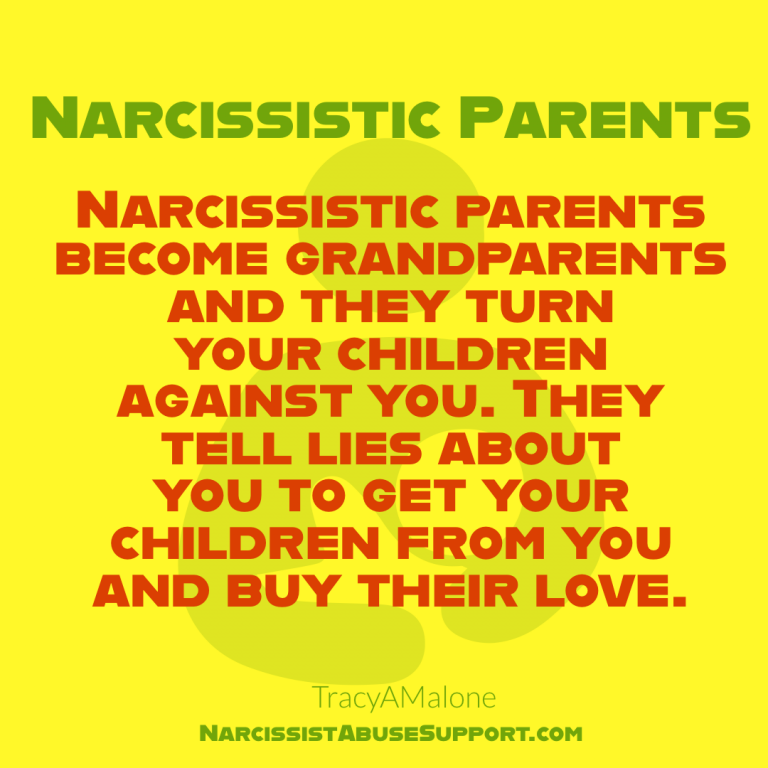 In addition, this model is simple and understandable, like any trade and market relations: you give me a diary with fives, I give you love and recognition.
In addition, this model is simple and understandable, like any trade and market relations: you give me a diary with fives, I give you love and recognition.
Thus, the true core of the child's personality becomes unclaimed. All you need is a perfect projection. As a result, the future narcissist forms a flawed image of the "I", is not capable of empathy and dialogue. The void is filled with hypertrophied conceit, delusions of grandeur and overcritical perception of other people. The narcissist believes that he can only be understood and accepted by superhumans, and that he will not want to communicate with ordinary proles like you and me. He builds communication so that simultaneously receive praise and break those around him with coldness and excessive demands, just as once broke him.
2) Narcissistic injury - if in the first case we have a pure and homogeneous narcissistic character, then here we are talking about an event that pushes a person onto the path of narcissism, even if he is initially dominated by a different type of personality. As a rule, the narcissistic trauma is a sharp decrease in status, a hierarchical collapse, public humiliation, an attempt to take on impossible obligations. In almost every anamnesis there is unhappy love, rejection and rejection as the most powerful fixer of trauma.
As a rule, the narcissistic trauma is a sharp decrease in status, a hierarchical collapse, public humiliation, an attempt to take on impossible obligations. In almost every anamnesis there is unhappy love, rejection and rejection as the most powerful fixer of trauma.
Moving away from shock, a person begins to gain self-esteem back. Only now, increased anxiety, distrust and fear of addiction are added to all his relationships. He gradually grows into a manipulative narcissist, obsessed with improving his false self.
3) Narcissistic contagion - none of the psychoanalysts developed this concept, so I offer a little gag. My personal practice shows that very many people who find themselves in a narcissistic party begin to gradually adopt their behavioral patterns and motivations. A person first becomes a fan of a narcissist, and then tries to catch up with him. Damn Facebook, in my opinion, is literally built on the stimulation of narcissism, engaging in an endless race of achievements.
Narcissists, especially successful representatives, know how to poison other people with dependence on the fictional world of Bohemia. People are filled with poison when they try to fit into the immoral and meaningless world of narcissists, thinking that there is some profit waiting for them, some special treatment. There is a narcissistic streak in every person - each of us is vulnerable and can fall, blinded by egocentrism and a thirst for honors .
I have arranged the root causes in order of increasing success of the therapeutic intervention. That is, the narcissistic expansion is practically not treated and is not corrected, the narcissistic injury with sin in half can be cured, and the easiest way is to save the infected. It's like with drug addicts - to isolate from drug addict friends and dealers, survive withdrawal and prevent relapse.
Narcissus is easy to follow on social media. Usually, this is a superficial and pretentious type with a bunch of friends who rush to like his slightest sneeze.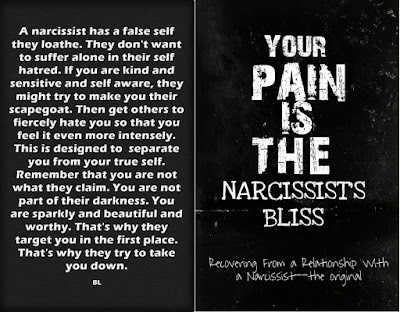
Signs
And now the traditional reminder "how to recognize a narcissist" of thirteen points.
1) The narcissist does not respond adequately to criticism. Suddenly, arrogance and the veil of superiority fall from him, and he begins to swear in public. He cannot answer a negative comment himself - this must be done by one of his company. Only then will the narcissist be able to stabilize his shaken self-esteem. Therefore a pack of sing-alongs immediately swoops down on the stranger, and they drive him out of his comfort zone in a crowd . After that, the news of the glorious victory will be inscribed in all public chronicles.
2) The narcissist is just asking for compliments. He demandingly waits for bragging rights, this is something like a rent for staying in his company. If you don't pay, it will quickly cool off.
3) The narcissist has a utilitarian attitude towards the people around him. He does not see them as independent subjects, therefore he often breaks into their lives, grossly violates their personal space. It is impossible to get emotional support from him . Most likely, he will be afraid of manipulation, break loose and declare that he himself needs it.
It is impossible to get emotional support from him . Most likely, he will be afraid of manipulation, break loose and declare that he himself needs it.
4) Envy wears out the narcissist. He tries to control the entire circle of his acquaintances. He keeps a close watch so that no one jumps off and gets carried away by someone besides him. In a love relationship, he is harassed by surveillance, control, and will constantly demand confirmation that he is the best and most beloved.
↓5) He is terribly afraid to show his true self. He is also afraid of any actions that can knock out a stool of cheap popularity from under him. He has a certain audience for which he works, and he will never go against it. At the same time, the higher the narcissist climbs, the worse and more unbearable he behaves. He believes that others tolerate him only for status, and therefore wants to check if they will love him if he starts acting like an asshole on a daily basis.
6) Narcissus boasts of diplomas and medals. He always gives a complete list of his awards. His thinking is also deformed: he evaluates people in the same way, whoever has more awards and other status achievements is cooler. They compare themselves to others all the time. It is not enough for them to succeed - this must happen against the backdrop of less successful comrades .
He always gives a complete list of his awards. His thinking is also deformed: he evaluates people in the same way, whoever has more awards and other status achievements is cooler. They compare themselves to others all the time. It is not enough for them to succeed - this must happen against the backdrop of less successful comrades .
7) Narcissists are easy to follow on social media. Usually, this is a superficial and pretentious type with a bunch of friends who rush to like his slightest sneeze. With the formed troupe, he tours all the resources where at least minimal support from the audience is required for promotion. The psychology of masturbation works here too: narcissists like themselves and repost any mention of themselves on the wall. And yes, they have a selfie stick. Here I need to write some vulgarity, but somehow I'm already tired.
8) For some inexplicable reason, narcissists believe they deserve special treatment: a personal touch, a separate line for sausages, a cherry on a cherry on a cake. They are never satisfied with the quality of service. If suddenly an official or a waiter treats them in the same way as hundreds of other visitors, narcissists feel wild resentment, which they do not hesitate to throw out in complaints books. Everyone should drop everything and take care of him alone.
They are never satisfied with the quality of service. If suddenly an official or a waiter treats them in the same way as hundreds of other visitors, narcissists feel wild resentment, which they do not hesitate to throw out in complaints books. Everyone should drop everything and take care of him alone.
9) They have one or two inviolable idols. If you try to say something against him, you will stumble upon the same inadequate reaction as if you were to criticize the narcissist himself. At the same time, the attitude towards idols is absolutely not critical, they rush about with the books of those who are considered great, and sell them from right to left.
10) They reduce any conversations to themselves and their topics. If someone shows pictures of their cat, then the narcissist will interrupt the discussion and will definitely jump in with his cat. If we are talking about creativity, then it will bury itself in the plots and texts of the narcissist. He simply does not know how to keep up a conversation about abstract things that have nothing to do with him personally.
11) Projects are rarely completed. They collapse under the weight of the obligations they have proudly placed on themselves. Yes, many narcissists are workaholics, but often this work is wasted. They do not know how to plan, they do not think beyond two moves, they are generally not able to adhere to any strategy, preferring to respond to momentary challenges. They spend all their energy on the current small things.
12) Narcissists never. Again. Never apologize almost never use the standard polite expressions “psib-please” because, due to the presence of such protection as omnipotent control, as well as a lack of empathy, they take everything for granted. They handed the plate to the narcissist - what, are there other options? In communication, they owe nothing to anyone.
13) Narcissus produces a heap of simulacra. To be in trend, he has to write reviews of popular films and books, uncomment colleagues in the narcissistic workshop in order to hope for reciprocal services. It quickly closes in a limited cultural space. Everything he does bears the stamp of secondary, chewed. But it’s hard to put your own “I” into work when this “I” does not exist at all.
It quickly closes in a limited cultural space. Everything he does bears the stamp of secondary, chewed. But it’s hard to put your own “I” into work when this “I” does not exist at all.
The narcissist sees himself as the root cause of everything. He attributes all accidents, all the free actions of other people to his own account.
Defenses
1) Idealization / devaluation - as we have already noticed, there are no halftones in the perception of narcissists. Narcissus in his own eyes is either a god or a nonentity. Surrounding - either idols of gold, or mounds of shit. And the stronger the idealization, the harder the exposure will follow. This leads to the need to constantly change the object of admiration, prevents the establishment of long-term relationships.
2) Omnipotent control - the narcissist sees himself as the ultimate cause of everything. He attributes all accidents, all the free actions of other people to his own account. In addition, narcissists see the world through the prism of romanticism: they have an idea of how any event should proceed, and what roles others should play.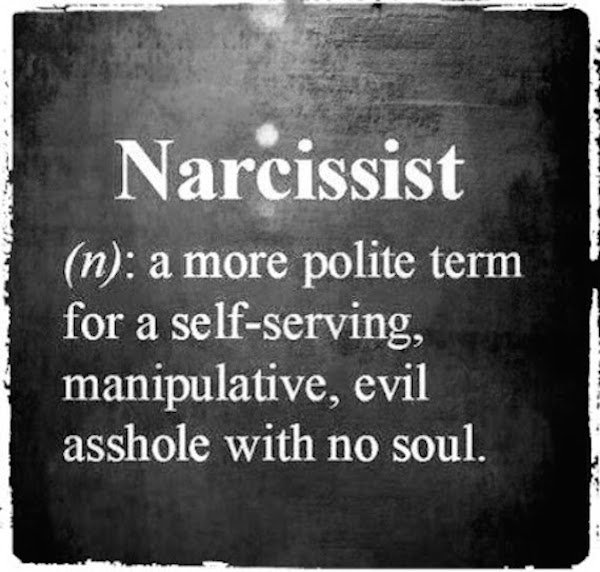 Puppet theater with princesses and unicorns.
Puppet theater with princesses and unicorns.
3) Projection — one's own negative intentions are attributed to others. If a narcissist hates himself, then it seems to him that others hate him and despise him. The use of projection worsens an already inadequate sense of interpersonal boundaries. For the same reason, there are a lot of homosexuals among narcissists. Narcissists are afraid of the opposite sex, maybe even jealous in some way. Fear of castration, envy of the phallus—well, you know all those Freudian mantras. The choice of a person of the same sex as a sexual object indicates the desire to have an ideal twin, who should not be afraid of .
4) Regression - a rollback into infantilism in frustration from a collision with the real world. The narcissist begins to avoid difficulties, hide from competitors, and generally needs the most primitive manifestations of love and affection. Needs are reduced to the most basic: to eat and sleep, in a dry, safe place. The narcissist can be capricious up to real psychosomatic illnesses.
The narcissist can be capricious up to real psychosomatic illnesses.
Kill the narcissist in you. No one should catch you on the desire to be inimitable and unique.
How to defend yourself
First of all, you must be aware that you are not at war with a person, but with a false image. It is impossible to defeat a fictional projection, don't even try. You need to keep yourself from becoming jealous of the narcissist, although he will do everything to realize this scenario. Demythologize, debunk, expose . If you believe even for a second in the fairy tale that the narcissist draws for naive viewers, you will put yourself at risk.
Kill the narcissist in you. No one should catch you on the desire to be inimitable and unique. It seems that it is worth getting close to a narcissist, and the whole world will see something in you that they have not noticed before. Yes, I want to partake of the narcissistic halo, to sip glory. But this is just an appearance. These are tantalum flours.
These are tantalum flours.
Narcissus is manipulative, although without a glimpse of brilliant innovation in this area. Most often, he provokes you to anger or other strong negative emotions with his arrogant and arrogant behavior. If you have a passionate desire to teach the bastard a lesson, then you are caught. You picked up the projection that the narcissist pushed out of himself and became exactly what he expected to see. Restrain yourself from the desire to immediately get involved in a skirmish for any joke. Even if twenty guard poodles of Narcissus later neighed over this joke. Another trick is to make you feel ashamed and inferior. Anyone who gets caught up in a Facebook image competition with a narcissist will spend a lot of time and effort creating an attractive façade that has nothing fundamental behind it.
Never get involved in a narcissist's projects, avoid work that will benefit him. He has a lot of grandiose plans, but what prevents you from concentrating on your business? Maybe they are not so exciting, but they are your . Try to clearly distinguish between interests, do not become an accomplice in dubious undertakings and startups.
Try to clearly distinguish between interests, do not become an accomplice in dubious undertakings and startups.
Defend your own borders fiercely to the point of scandal. It is necessary to protect your possessions from the invasion of a narcissist. Let him feel rejected every time, shame him, let the pain be incomparable with the feeling of power from penetrating into your personal space. It may take several iterations, but, sooner or later, you will be able to defend the autonomy, and the narcissist will go in search of easier victims. Don't bend over on this issue. Don't like the idea of counter-aggression? Do you want to save face and good relations with a narcissist and his gang? Then read some other method, somewhere for sure there is a "Method to please" in the spirit of old Carnegie .
Do not try to moralize, appeal to conscience - the narcissist does not suffer from this. This is a whole, but at the same time undeveloped personality, and it is best to subdue it through pain. And the absence of pain is like an encouragement. The tactic of open protest is one of the best self-defense options for a narcissist.
And the absence of pain is like an encouragement. The tactic of open protest is one of the best self-defense options for a narcissist.
Narcissus is an attacking type, he himself is used to manipulating. Therefore, countermanipulative schemes work much better with him.
How to manipulate
Manipulating a narcissist is quite difficult, because he runs into his selfish needs and refuses to move away from them. If you want something to be done, let it be done in public. Let the narcissist, if he helps you, get some symbolic points. Never try to manipulate a narcissist on the basis of an interpersonal carrot and stick - external evaluation will always be the dominant factor.
If you rise in society, sooner or later you will have to go through a layer of narcissistic personalities. Let's say our media sphere is made up almost entirely of narcissists, although many of them are infected and not original. Take advantage of the fact that the narcissist perceives other people as self-objects.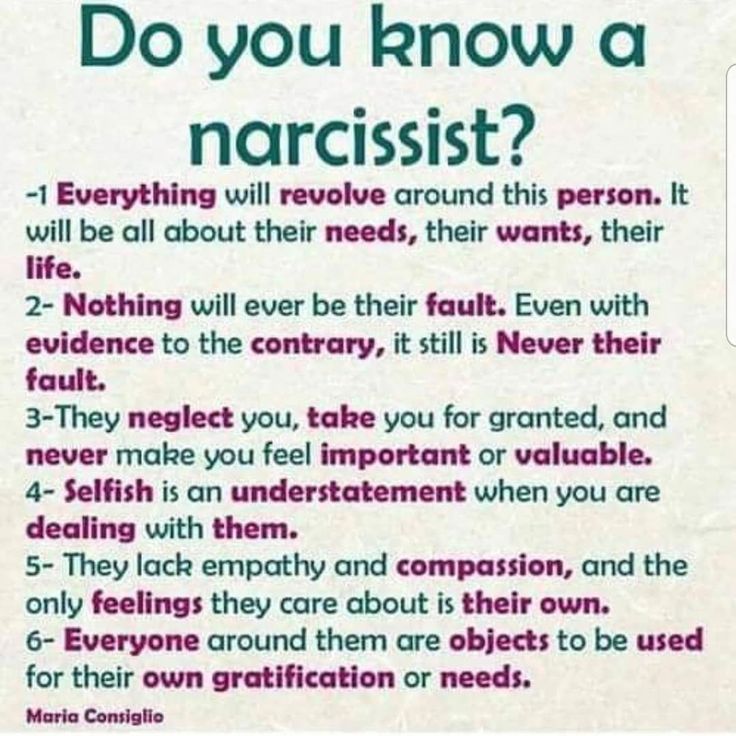 If he likes you in some way, he will drag you into his circle and advertise. As a thing, as a personal find - but is it really that important? You can easily enlist basic support from his like-minded people. And there it is not difficult to throw off the narcissist himself, because, as a rule, he is not very productive and is too busy with flattery and intrigues. Strength is valued in this circle, if you demonstrate great toughness, then the narcissist's mongrels will easily betray him and come over to your side. This is generally a common practice in narcissistic communities, so there is an off-scale degree of distrust. All of them are boiled in one cauldron, in which caramel and pus are equally divided.
If he likes you in some way, he will drag you into his circle and advertise. As a thing, as a personal find - but is it really that important? You can easily enlist basic support from his like-minded people. And there it is not difficult to throw off the narcissist himself, because, as a rule, he is not very productive and is too busy with flattery and intrigues. Strength is valued in this circle, if you demonstrate great toughness, then the narcissist's mongrels will easily betray him and come over to your side. This is generally a common practice in narcissistic communities, so there is an off-scale degree of distrust. All of them are boiled in one cauldron, in which caramel and pus are equally divided.
A narcissist can be made addicted in two ways. Or through envy, here you need to have an image and support stronger than his. Or through his need to control and manage: be the elusive and beautiful butterfly that an avid collector tries in vain to catch.
Narcissus is an attacking type, he himself is used to manipulating. Therefore, countermanipulative schemes work much better with him. The clearer your consciousness, the clearer you see the background of what is happening, the stronger you hold on to your own interests, the easier it will be for you to cope with a narcissist.
Therefore, countermanipulative schemes work much better with him. The clearer your consciousness, the clearer you see the background of what is happening, the stronger you hold on to your own interests, the easier it will be for you to cope with a narcissist.
Wear down the enemy, the daffodil is not imprisoned for trench warfare. He needs quick one-time wins. One of the problems of the narcissist is the wrong distribution of forces and resources.
How to kill
Curiously, a narcissist is much easier to kill than to manipulate. There are so many ways to cut it with a razor. Laughter, as I have repeatedly said, is a terrible weapon, but against a narcissistic personality it is impressively effective. Ridicule is the best strategy for dealing with a narcissist , the more people join the laughter, the better. Chase and harass him with banter. But, I ask you, let it really be funny, sharp and smart. Otherwise, you will drown in the mudflow of vulgar libels, which is massively practiced on graphomaniac resources.
Is the narcissist breaking boundaries? Answer him the same. Ignore the false personality, try to get to the real "I" with a red-hot iron, expose the existential emptiness of the narcissist. Take advantage of the fact that the narcissist does not have his own development strategy, he is always busy responding to everyday events and requests. You will beat him in the long run, you just have to wait for the depressive phase when the narcissist eats away at himself with doubts. And sooner or later she will come, you just need to catch this moment and put pressure on it. The narcissist is helpless against the strategy of sustainable development that a person with adequate self-esteem uses.
Pull the narcissist into communities where he has no support, pull him into new situations. Narcissists are somewhat similar to chameleons, they are super-adaptive to the external environment. Let the external environment be something unpredictable and chaotic. It's like putting a chameleon on sheets of multi-colored paper and once a minute pulling out the sheet, forcing it to change color again. He will quickly go crazy.
He will quickly go crazy.
Narcissus, burdened with real power, is best not to mess with as long as you are in his jurisdiction. However, if he cannot exert any administrative pressure on you, then he can be dealt with just as easily as other narcissists. Even a narcissist who has achieved everything in the world will still be dependent on external evaluations and dissatisfied with his position. If there is no escape from the narcissistic boss, then it is easier and more profitable to become his favorite. If you can’t become a favorite, then try to get yourself maximum autonomy and enlist the sympathy of your colleagues. In this case, the narcissist will be afraid to touch you so that other workers do not perceive him as a petty vindictive dirty trick. He doesn't understand that in fact, no one cares about , he always feels like in public, and this should be used.
Finally, repeat the narcissistic trauma, if any. Reject it, drop it, humiliate it. In the community of narcissists, the one who manages to throw a partner first wins.
Wear down the enemy, the daffodil is not imprisoned for trench warfare. He needs quick one-time wins. One of the problems of the narcissist is the wrong distribution of forces and resources. Because of this, he is quickly out of breath. Try to cut him off from the support group. If the narcissist is left alone with you, then it is enough to portray not even contempt, but indifference, and he will quickly come to naught. Just don't fall into the traps of the illusory world of success.
In conclusion, I will say that narcissists are only as strong as you have not overcome narcissism in yourself . He can be both a very dangerous opponent and a paper tiger, and it depends not on him, but on you. Other psychotypes are a threat in themselves, but the narcissist is terrible only because he draws you into a fruitless competitive activity and into an airless space of mutual pleasing. Before you go on the warpath, defeat the narcissist within yourself, and then not a single narcissist can harm you from the outside.
Narcissists: who they are, signs of narcissism, rules of conduct
The article was reviewed and commented by clinical psychologist and scientific researcher Christina Andreyuk.
- Who is
- How to recognize
- Men and women
- Types
- Treatment
- How to communicate
- How to leave
Who is a narcissist?
Advertising on RBC www.adv.rbc.ru
Narcissism is a feature of the psyche in which a person perceives himself as a unique individual, considers himself better than others, which is not always true. In fact, these traits are present in the character of many people. In a healthy personality, they result in ambition and a desire to please. But under a certain scenario, laid down in childhood, such behavior can turn into a pathology, which is often accompanied by other diagnoses, such as bipolar disorder and depression.
Contrary to popular belief, people with narcissistic personality disorder do not like themselves very much. Rather, they admire their grandiose projection, which allows them to close gaps in their own self-esteem. Such protection allows narcissists to avoid deep feelings and self-doubt. A person with this disorder does not tolerate minimal criticism, he perceives remarks as a personal insult and is able to throw a tantrum if someone refuses to admire him. You can check how narcissistic traits are characteristic of you or your partner using the NPI questionnaire [1]. The more positive answers a person gives to statements from the list compiled by American psychologists and researchers Robert Raskin and Howard Terry, the more narcissistic features appear in him. Meeting people with a true personality disorder is not easy. According to various sources, their number in society varies from 1 to 6%.
Rather, they admire their grandiose projection, which allows them to close gaps in their own self-esteem. Such protection allows narcissists to avoid deep feelings and self-doubt. A person with this disorder does not tolerate minimal criticism, he perceives remarks as a personal insult and is able to throw a tantrum if someone refuses to admire him. You can check how narcissistic traits are characteristic of you or your partner using the NPI questionnaire [1]. The more positive answers a person gives to statements from the list compiled by American psychologists and researchers Robert Raskin and Howard Terry, the more narcissistic features appear in him. Meeting people with a true personality disorder is not easy. According to various sources, their number in society varies from 1 to 6%.
How to recognize a narcissist?
According to the American psychiatrists' handbook "Diagnostical and Statistical Manual of Mental Disorders" [2], there are nine signs of narcissistic personality disorder. If at least five of these are present, a doctor may suspect a disorder. Usually such a person:
If at least five of these are present, a doctor may suspect a disorder. Usually such a person:
- Has an inflated sense of self-importance. He often exaggerates his achievements and talents. Expects people to admire his actions, even if they were minor. If the narcissist organized the cleaning of the yard, then at least the district newspaper should write about it.
- Preoccupied with fantasies of unlimited success, power, beauty, or ideal love. To each new partner, the narcissist can say that he is the love of his life or wait for him to fulfill his fantasies. The beginning of such a relationship is a magical, but short period. In work, the narcissist, according to him, is a genius. If he has not been able to achieve great results, he is simply sure that success lies ahead of him, even if it is time for him to retire.
- Believes that he is not like others and has few equals. Therefore, the environment must match. The narcissist chooses “special” people as friends and partners, for example, with high social status or model appearance.
 Thus, he seems to reflect himself through them, because his problems are unique and can only be understood by special people. Narcissists like to be associated with big brands, whether it be in their work projects or clothing choices.
Thus, he seems to reflect himself through them, because his problems are unique and can only be understood by special people. Narcissists like to be associated with big brands, whether it be in their work projects or clothing choices. - Requires constant attention, recognition and admiration, even if you just took out the trash or cooked dinner.
- I am absolutely sure that everyone owes him. Expectations for other people are usually very high. Close people are obliged to fulfill the requests of the narcissist at the first call.
- Uses other people to achieve his own goals. For him, it goes without saying. The narcissist is not used to sincerely thanking for services and does it only within the framework of the accepted ethical norm.
- He has difficulty experiencing empathy. Such people are not able to draw a parallel between their feelings and the feelings of others. Therefore, the narcissist does not even think about when he hurts someone. Very often, this behavior is mistaken for abuse by partners of narcissists.
 In fact, he may be concerned with how to hide the shame of his failure and not lose his greatness.
In fact, he may be concerned with how to hide the shame of his failure and not lose his greatness. - Often jealous of others and believes that others envy him. In the latter case, it is by this circumstance that the narcissist explains the criticism of others in his address.
- Arrogant towards other people. Such a person absolutely sincerely believes that he is better than others, and other people's shortcomings are an excellent reason to assert himself.
To decide to end a relationship with a narcissist, write down the reasons for breaking up and keep the list with you
© Unsplash
Men and women are narcissists disorder in one form or another, men are more likely to be affected by this disorder than women. The data were collected over a period of 30 years, and the percentage ratio between the sexes did not change much during this time [3].
In doing so, the researchers noted two important points. First, male narcissists were more likely than females to exploit others and believe they were entitled to certain privileges. Secondly, men were more likely to seek power. Scientists explain this by the fact that until recently, leadership qualities did not meet the criteria for femininity. According to one of the authors of the study, Emily Griyalva, girls are more often criticized for aggressiveness and authoritarianism. Thus, society unconsciously suppressed manifestations of narcissistic behavior [4].
Secondly, men were more likely to seek power. Scientists explain this by the fact that until recently, leadership qualities did not meet the criteria for femininity. According to one of the authors of the study, Emily Griyalva, girls are more often criticized for aggressiveness and authoritarianism. Thus, society unconsciously suppressed manifestations of narcissistic behavior [4].
As regards vanity and striving for a bright self-presentation, in this respect there was no significant difference between men and women.
Types of narcissists and how they are formed
There are different approaches to the formation of narcissism, including studies that allow for genetic influence, but this is not a decisive factor in the formation of personality.
In 1914, Sigmund Freud stated that children somehow go through a stage of primary narcissism. He believed that this was an intermediate stage of growing up, but later he singled out other forms of narcissism, to a greater extent associated with mental disorders.
Neuro-Freudian Karen Horney argued that the development of such character traits may be due to the fact that parents in various ways pushed the child to create psychological protection. For example, they could delegate the embodiment of their ambitions or rejected the real manifestations of the child, instilling a sense of inferiority.
The contribution of parental figures to the formation of narcissistic disorder is also noted by psychotherapist and researcher Otto Kernberg. He compares narcissism with a false prop that a person erects in order to receive from others the admiration and confidence that he did not receive from his parents in childhood and cannot give himself in adulthood [5].
In the book of psychologist Elinor Greenberg "Borderline, Narcissistic, and Schizoid Adaptations: the pursuit of Love Admiration and Safety" [6], the author divides narcissists into three types:
- Open, or grandiose. Embodied stereotype. A bright character illustrating this feature of development and behavior.
 His whole being screams, "Look at me." This childish behavior indicates that a person is stuck at an age when adults pay a lot of attention to the child, praise him excessively, suggest that he is special, forgetting to teach him empathy.
His whole being screams, "Look at me." This childish behavior indicates that a person is stuck at an age when adults pay a lot of attention to the child, praise him excessively, suggest that he is special, forgetting to teach him empathy. - Hidden or depressive. Such people can grow up in families where one of the relatives, including mother or father, was a narcissist. At the same time, there was a high level of competition for love and attention. On the one hand, children copied the behavior model of narcissistic parents, on the other hand, such a child formed protective mechanisms, since an adult narcissist would certainly assert himself at his expense. Growing up, such people may not openly say that they are special. They would rather choose a person, a book, an object and exalt their virtues. Thus, the narcissist puts them on a par with himself. In personal relationships, such people do not like direct conflicts. Their weapon is passive aggression. A favorite technique is to promise and not deliver, and then blame the other person for everything.
 They tend to be insecure, and ambivalent behavior often leads them to depression.
They tend to be insecure, and ambivalent behavior often leads them to depression. - Perverse or toxic. Such people go even further. They love not only admiration, but also submission. Narcissists of this type love to wreak havoc around themselves, the same that reigned in their childhood in relationships with their parents. These narcissists often give their partners an emotional rollercoaster of humiliation and praise. They take pleasure in destroying other people's careers, destroying people morally and spiritually.
Mixed representatives of these types also exist.
Treatment for narcissism
Most often, narcissists don't even suspect that something is wrong with them, because they don't tend to blame themselves for anything. So if such people were seen by a specialist, then the reason for this could be related problems: depression, bipolar disorder, or excessive alcohol consumption. There is no cure for narcissism yet. Psychotherapy has a positive effect on such patients.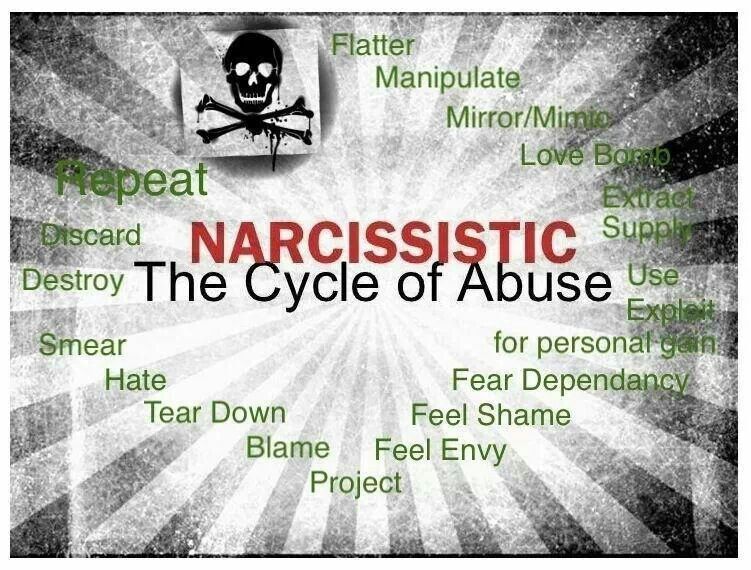 Properly structured classes can help a person establish relationships with loved ones, learn to withstand criticism, stop despising themselves and others, set realistic goals and achieve them, and not dream of sky-high heights [7].
Properly structured classes can help a person establish relationships with loved ones, learn to withstand criticism, stop despising themselves and others, set realistic goals and achieve them, and not dream of sky-high heights [7].
Although there is no cure for narcissism yet, psychotherapy has a positive effect
© Thiago Matos / Pexels
How to communicate with a narcissist?
Building an even relationship with a narcissist is not always easy. Some prefer to just cut them off. But what if this is not possible? Let's say that person is a family member or ex-husband/wife with whom you have children in common.
- The first thing psychologists advise is to try to detach yourself emotionally. Ignore toxic statements and manipulations. It is useless to expect sudden changes in behavior from such people. According to research, narcissists do not tend to learn from their own mistakes simply because they are sure they did not make them [8].
- Your personal boundaries are your guard against the actions of a narcissist.
 “This won’t happen to me anymore”, “I won’t fall for these manipulations” - phrases that will help to avoid an unpleasant conversation or intrusive requests of a narcissist. You can't wait for a response.
“This won’t happen to me anymore”, “I won’t fall for these manipulations” - phrases that will help to avoid an unpleasant conversation or intrusive requests of a narcissist. You can't wait for a response. - The shortest answers, conditionally “yes” and “no”, are your main allies in a dialogue with such a person if he began to resort to manipulation. By minimizing communication, you give him much less reason to hook on to some phrase and launch an attack.
- Stick to the topic of conversation and don't get sidetracked. Perhaps your counterpart will try to knock you out of the saddle with accusations or get personal. In this case, the phrase “We are going off topic” will help bring the discussion back on track.
- Compliments. If you really need to get something out of a narcissist, don't be stingy with praise. Most likely, he will even enjoy fulfilling your request. Yes, this is manipulation, but who said that only a narcissist can use this technique?
How to get away from a narcissist
The end of a relationship is never easy. With a narcissist, breaking up can be doubly difficult. For him, the fact that he was abandoned is an intolerable insult. That is why he will try by hook or by crook to bring the partner back. During this period, he will become sensitive and gentle, will swear eternal love and will do this until his victim loses his vigilance. Often, therefore, relationships with a narcissist develop into a cycle of breaks and reunions. Nevertheless, if you decide to put an end to your communication, psychologists recommend the following:
With a narcissist, breaking up can be doubly difficult. For him, the fact that he was abandoned is an intolerable insult. That is why he will try by hook or by crook to bring the partner back. During this period, he will become sensitive and gentle, will swear eternal love and will do this until his victim loses his vigilance. Often, therefore, relationships with a narcissist develop into a cycle of breaks and reunions. Nevertheless, if you decide to put an end to your communication, psychologists recommend the following:
- Write down the reasons why you want to leave. It's best to keep this list around in case the narcissist decides to drag you back into the relationship by talking about eternal love.
- Give up illusions. It is difficult for such people to change, especially without the help of a specialist. Do you have time to wait until he finally learns to show empathy and respect?
- Disconnect all contacts. Ask a friend to pick up your belongings from the narcissist.
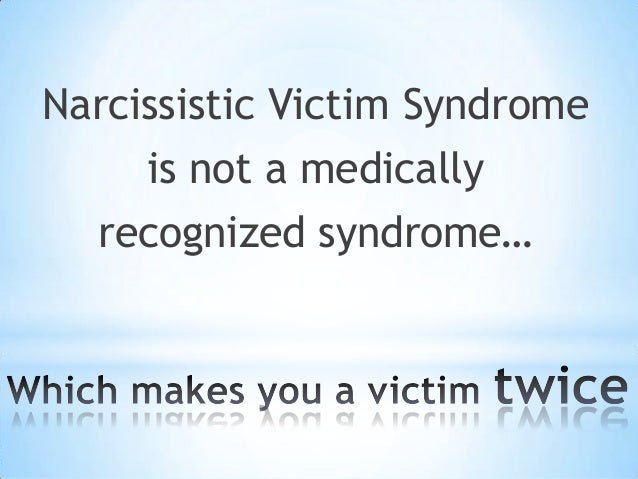 Block this person in all phones and messengers. If you have children in common, at first ask someone close to you to be with you at general meetings.
Block this person in all phones and messengers. If you have children in common, at first ask someone close to you to be with you at general meetings. - Let go of your feelings. Breaking up, even with a toxic person, is always hard. Give yourself time to get over this situation. Just don't expect the narcissist to suffer in return. Most likely, during this period, he will try to restore his shattered ego and will choose not the most pleasant ways for this: either he will tell everyone what a bad person you are, or seek solace in the arms of someone else.
There are nine signs of narcissism, but five signs can already be suspected of it
© Martino Pietropoli / Unsplash
Kristina Andreyuk, clinical psychologist, researcher. Research interests: mentalization, manipulative behavior, personality disorders
In addition to family relationships, external factors can also enhance narcissistic traits. Media and social networks broadcast often unattainable ideals, and self-improvement services are imposed by advertising. All this can affect the psyche.
All this can affect the psyche.
In "normal narcissism" people try to please others, to achieve success in work, which helps them to adapt in society. However, in the case of pathology, a person's ideas about themselves are distorted. In this case, the emphasis is on the grandiosity of his figure. He experiences difficulties in forming adequate ideas about other people, abuses manipulations, grossly violates the boundaries of the interlocutor and ignores his comfort. Narcissistic features can manifest themselves in pathological perfectionism, hypochondria, constant attempts to correct their "flaws", including, for example, transforming one's appearance as the most noticeable attribute of self-presentation for others.
On the surface, narcissists give the impression of being rather pleasant people. According to research, many socially active narcissists have charisma, know how to hold an audience, are not afraid to express themselves, appear self-confident, and have high claims regarding academic and professional achievements. These qualities often show up in job interviews and help narcissists get into leadership positions. However, such bosses may use too subjective criteria when evaluating employees, focusing not on their professional achievements, but on the degree of admiration, devotion, and the absence of doubts about the correctness of the leader's decisions.
These qualities often show up in job interviews and help narcissists get into leadership positions. However, such bosses may use too subjective criteria when evaluating employees, focusing not on their professional achievements, but on the degree of admiration, devotion, and the absence of doubts about the correctness of the leader's decisions.
Close relationships are difficult for narcissists. In partners and friends, they are primarily looking for confirmation of their exclusivity, superiority (which reinforces vulnerable self-esteem). Often, such people confuse the attachment that accompanies healthy partnerships and collaborations with the addiction that can shackle and inspire fear. The demands of constant adoration and recognition of their grandiosity, which the narcissist often implements in the form of excessive control over the thoughts and feelings of a partner, in most cases, sooner or later are not fully satisfied, which leads to conflicts and increased manipulative behavior.
If you have found any manifestations of narcissistic traits in yourself and want to change them, then it will be useful for you to develop the skills of self-reflection, mentalization (understanding mental states), work on the development of emotional intelligence, empathy (for example, discuss with friends the films you have watched, read books in terms of understanding the inner world of the characters, their motivation, etc.). It is very important to learn to analyze what is happening from different positions, without sliding into extreme points, such as, for example, idealization and depreciation - look for alternative explanations. Try to look at situations or actions from different angles, noting the possible positive aspects of seemingly negative events, including during conversations with loved ones.
If your loved one has narcissistic traits, you need to learn how to track the emotional states of both you and your interlocutor. It is necessary to soberly analyze situations of interpersonal communication.















